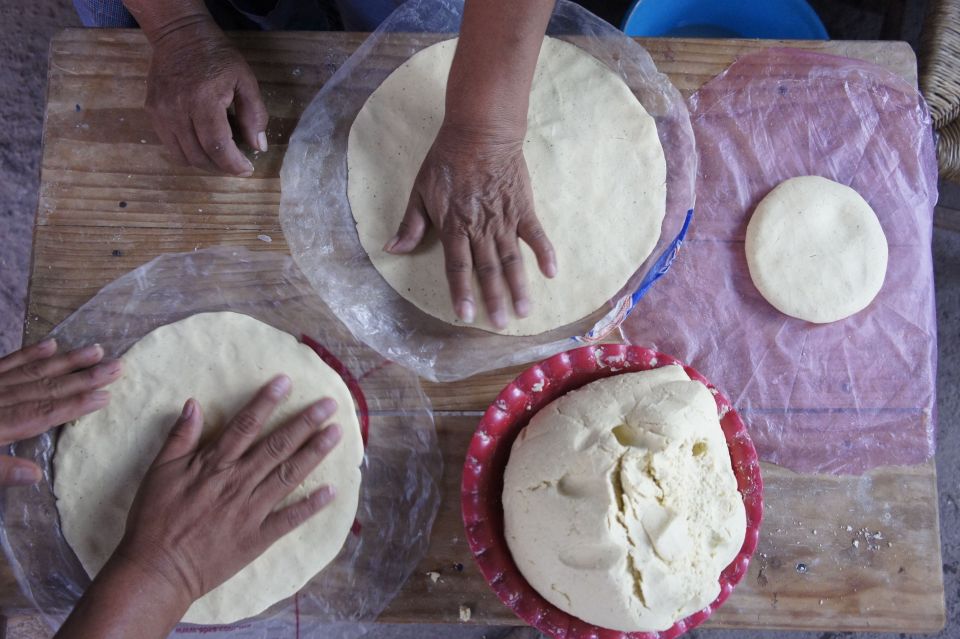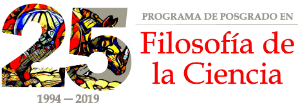

Contributor:
Cite as:
Ruvalcaba, Emilia. 2019. "Feminist Studies and Traditional Ways of Cooking Tortillas in Guerrero." In Methodological Interruptions Across the Field and Archive: Doing STS in Mexico, created by Arturo Vallejo. In Innovating STS Digital Exhibit, curated by Aalok Khandekar and Kim Fortun. Society for Social Studies of Science. August.
We are used to thinking about methodological interruptions as those factors external to the researcher that disrupt an ethnographic moment, a decision, or our archival research, but there are also some interruptions that we ourselves, as researchers, materialize. What happens when we decide to study a field site where we already have a preexisting role as an activist and are familiar with our informants? After five years of doing community work with nahua and ñoo savii women (from two different ethnic groups) in Guerrero, building firewood cooking stoves with an non-for-profit organization, I decided to explore the same place ethnographically. I wanted to understand the entangled relationships between cooking practices, and the identities of women in that region. My previous experience with these women materialized in my body, and fulfilled a double function that, on the one hand, helped me to quickly create spaces of intervention and trust, but, on the other hand, it also interrupted the new kinds of interactions I was seeking. I had to learn how to embrace my interruption, shifting the conversation from firewood as fuel to firewood as "kojkol". I moved in ways that I hadn't moved before, and to places that I had not explored before, allowing my own body to guide my research.
Assuming that “matter matters” in our own research influences the way we approach the field. Like Annemarie Mol says, “the ethnographic study of practices does not search for knowledge in subjects who have it in their minds and may talk about it. Instead, it locates knowledge primarily in activities, events, buildings, instruments, procedures, and so on” (2003, 32). The body, from this perspective, is not just some support or referent where knowledge is instantiated (Barad 2008, 139); instead, it speaks for itself; it is always related to other entities and discursive practices. In my case the body was a key for understanding the knowledge involved in the practices of cooking with firewood. I decided to carry a small GoPro camera that I placed on a chest support to record while I was walking, talking to women, learning to make tortillas. But when I saw the videos, they were useless. My height didn’t allow me to see what the women were doing because they were much shorter than me. Also, they were the ones doing the activity that I wanted to understand, and the camera was not recording that action. Then I asked one them if she wanted to use the camera while she was talking with me and cooking, and she agreed to it. This allowed me not only to record, but also to see things that I had not noticed before, things that women couldn’t express through words, all the small details of how they make tortillas: I saw their hands picking the first tortilla they made and making the sign of the cross with it to bless it, I could also see how they always placed the tortillas “face” upwards, because they believe that if you do not, people are not going to feel full after eating. This is one example of the methodological turns that guided my research, and it illustrates how assuming that the social is a field of embodied and materially interwoven practices where knowledge is built, necessarily affects the ways we decide to approach it.
Acha, Majandra Rodriguez. 2019. “La justicia climática debe ser antipatriarcal. Enraizando nuestro activismo en el suelo fértil de nuestras diversidades.” En Mujeres indígenas frente al cambio climático., editado por Rocío Silva Santisteban, 149–59. Perú.
Alaimo, Stacy, y Susan J. Hekman, eds. 2008. Material Feminisms. Bloomington, IN: Indiana University Press.
Barad, Karen. 2008. “Posthumanist Performativity: Toward an Understanding of How Matter Comes to Matter”. En Material Feminisms, editado por Stacy Alaimo y Susan J. Hekman. Bloomington, IN: Indiana University Press.
Harding, Sandra G. 1998. Is Science Multicultural? Postcolonialisms, Feminisms, and Epistemologies. Race, Gender, and Science. Bloomington, Ind: Indiana University Press.
Hess, David. 1995. Science and Technology in a Multicultural World: The Cultural Politics of Facts and Artifacts. New York: Columbia University Press.
Hess, David. 2007. “Ethnography and the Development of Science and Technology Studies”. En Handbook of Ethnography, editado por Paul Atkinson, Amanda Coffey, Sara Delamont, John Lofland, y Lyn Lofland, Reprinted, 234–45. Los Angeles London New Delhi Singapore Washington DC: SAGE.
Jake Kosek. 2006. Understories: The Political Life of Forests in Northern New Mexico.
Knorr Cetina, Karin, Theodore R Schatzki, Eike von Savigny. 2005. The Practice Turn in Contemporary Theory. http://public.ebookcentral.proquest.com/choice/publicfullrecord.aspx?p=2....
Latour, Bruno. 2016. La esperanza de Pandora: ensayos sobre la realidad de los estudios de la ciencia. Barcelona: Gedisa.
Mitchell, Timothy. 2002. Rule of Experts: Egypt, Techno-Politics, Modernity. Berkeley: University of California Press.
Raya, Mairin Iwanka. 2006. Mujeres Indígenas Confrontan la Violencia. Informe Complementario al Estudio Sobre Violencia Contra las Mujeres del Secretario General de las Naciones Unidas, FIMI.
STS Across Borders digital collections are focused through ten shared questions that can be asked across all STS formations so as to enable comparative insight.
...Read more
Furthering its theme, Innovations, Interruptions, Regenerations , the 2019 annual 4S meeting in New Orleans will include a special exhibit, Innovating STS , that showcases innovations ...Read more
Karen Barad's work is an important influence for the reflections expressed here. She invites us to think of new ontologies that overcome the old debates and dichotomies of the search for the "natural" versus the "cultural" or "things" versus "words." Under her approach, technology, objects, non-...Read more